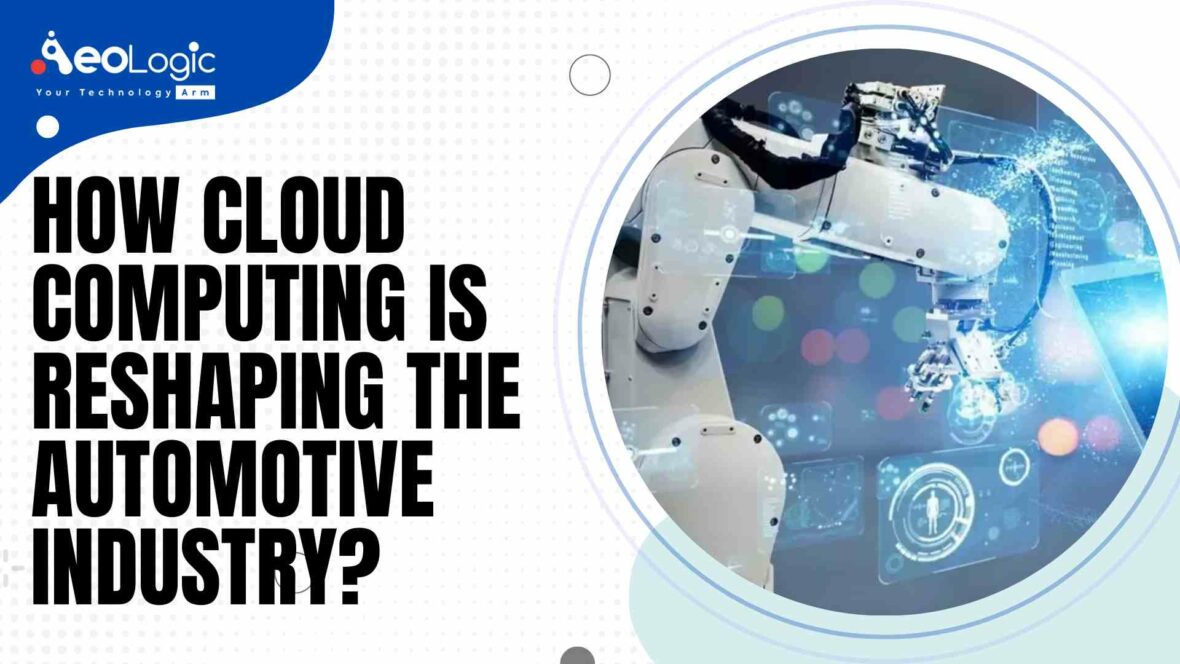With the market developing consistently, the automotive industry is undergoing the foremost technological advancements. Cut-throat competition and developments in the sector of technology are driving the force of innovation for this industry in the market. And, cloud computing in the automotive industry is in the limelight for being swift in adopting any new technology that hits the market ground. One such technological breakthrough is the thought of public cloud computing.
Cloud computing, be it private cloud computing or public cloud computing, is leading drastic changes in the operations of different industries by bringing innovation and business continuity proficiently. Not only the digital revolution but then also the smart revolution worked hand in hand to build public cloud computing in the automotive industry a solution that is equally cost-effective and simple to use.
Applications of Smart Automotive Cloud-Based Solutions
The automotive cloud is a platform particularly devised to cater to the requirements of the automotive industry. With the implementation of cloud computing in the automotive industry, the owners would not be purchasing a new car model as the cars would be having the potential of updating their software.
Following are a few cloud computing applications in the field of the automotive industry that one should certainly be aware of.
Connected vehicles
Any truck, bus, or car could be called as a connected vehicle if that can connect to the available devices nearby, over the Internet. Connected vehicles are built on the Internet of Things technology. This is making them capable of connecting to the devices of the passengers and downloading upgraded versions of software. As well as collecting and sending the vehicle’s data.
Also read: Why the Future of Electric Vehicles is in the Cloud
This technology is enhancing the overall driving experience by proceeding with the events and communication accordingly.
To put it differently, with connected vehicles technology buses, trucks, and cars are communicating with other potential vehicles and sharing data and information about mobility and safety.
Autonomous cars
This one application is booming at the moment. A self-driving car or an autonomous car is one that automatically drives itself by taking a sense of its surroundings.
These particular types of cars are not requiring any human drivers. And these are using difficult algorithms, cameras functioning 360 degrees, and sensors to drive themselves.
Though this technology is yet to be entirely advanced. However, the ones working on it are trying to mitigate road accidents and congestion because the number of self-driving cars on the roads is increasing exponentially. For enhancing the functionality of the vehicle, cloud computing in the automotive industry is widely being used in the field of autonomous cars.
Electric vehicles
An EV, instead of using a combustion engine that operates on fuel. It is using electric motors that run on electric power. Therefore, it is making them more environmentally friendly. Presently, a lot of electric vehicles are using lithium-ion batteries because their energy-retaining capacity is more. Also, they are long-lasting.
Electric vehicles are not requiring smart charging stations for recharging their batteries. This helps in accessing data for the optimal distribution and consumption of energy.
Using a cloud network solution in electric vehicles is allowing the driver to know about the road and weather conditions by exchanging data with the located data centers.
Benefits and Importance of Cloud Network Solution
With the COVID-19 pandemic having a dire impact on the industry and the constantly changing environment, the necessity of the cloud has certainly been magnified. Hence, its usage is becoming more crucial than before.
To be in the run with the latest industry challenges and trends the automotive businesses are choosing cloud computing services for:
Mitigating costs
The most talked-about leverage that cloud network solution is offering are in terms of maintenance. The on-premise hardware is high in cost due to labor, power usage, and consistent activity of maintenance.
However, using a cloud environment, all these responsibilities are on the service provider which eventually decreases the cost of maintenance.
Also read: How Technology is Strengthening the Future of EVs in India
Complicated infrastructure
The automotive industry entails complex operations that can be equally technical and non-technical. Combining analytics, greater engineering work, and huge networks of dealers, the automotive industry demands business continuity which comes from scalability. Also, it is requiring good infrastructural support.
Additionally, there might be a need for extra resources and storage and restricted time. For performing the operations.
Better collaboration
In the automotive industry, a lot of communication occurs both internally and externally between the producers with several other distributors and manufacturers.
Because different organizations are having varied ways of establishing business-to-business communication, at times it becomes a cumbersome task to carry out collaboration in the automotive industry.
However, with cloud platforms, several businesses are collaborating with their peers over a single platform. Since the cloud platform is having its own collaborative tools. You do not have to worry about developing your tools for collaboration.
Conclusion
We should know that in terms of the automotive industry the potential future is already here. Automakers and manufacturers who are exploring the landscape of development in the industry should consider migrating to cloud platforms as soon as possible.
For collaborations, please get in touch with us at support@aeologic.com.
FAQs
How cloud computing is transforming the automotive industry?
Automotive cloud solutions are supporting the continuous data flow of self-driving cars and offer uninterrupted network service. Hence, cloud platforms are improving the safety, efficiency, and security of self-driving cars
What are the benefits of cloud computing in the automotive industry?
These are increased cost-efficiency, better scalability, quicker time to market, and enhanced reliability. Furthermore, having access to new and innovative technology is a readily available service.






